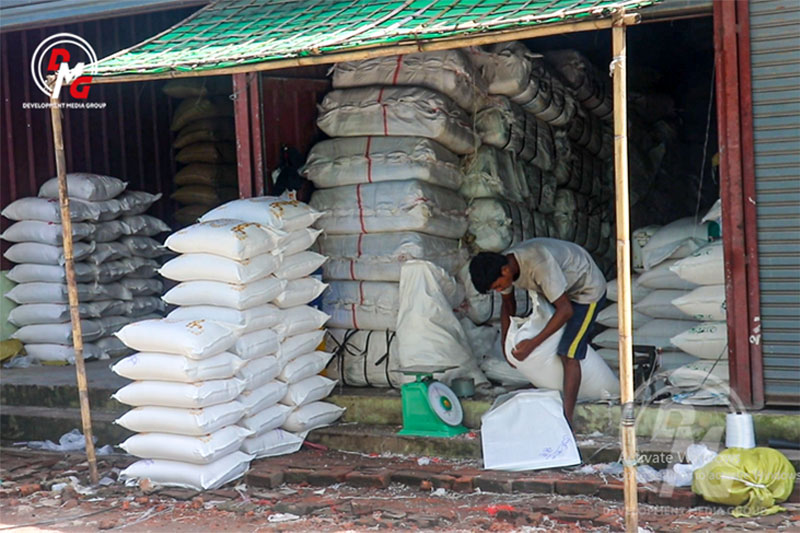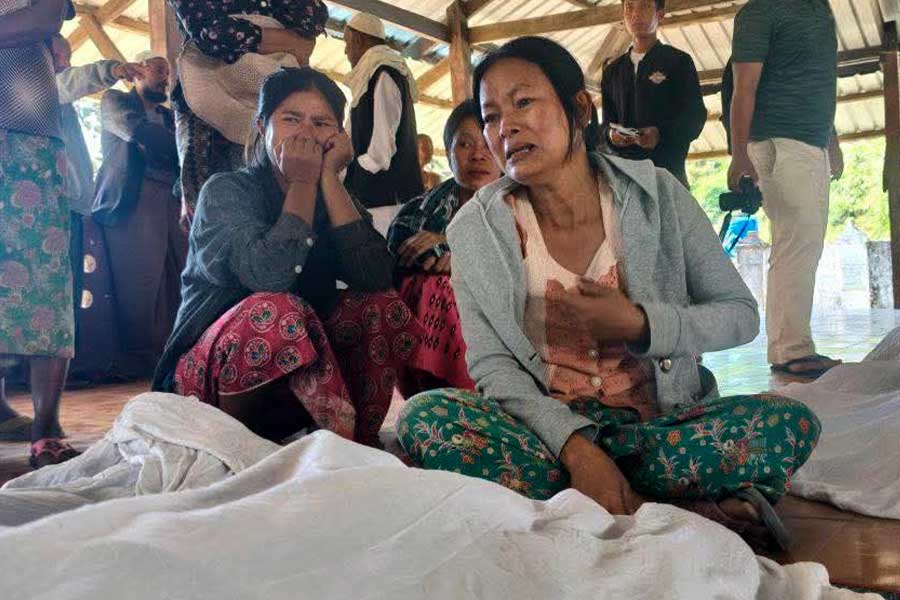- Nearly 70 civilians and POW family members killed or injured by junta attacks in Arakan State in one month
- Junta accused of extorting money from detained Muslims in Sittwe
- Weekly Highlights from Arakan State (Jan 26 to Feb 1, 2026)
- Arakanese youth stabbed in Mae Sot urgently needs financial aid for medical treatment
- Five years on Myanmar faces uncertain military and political outlook after coup
Junta to issue licences to rice stockpilers
The issuance of licences to those who stockpile rice will begin in the third week of September in order to stabilise domestic rice prices and to facilitate people’s livelihoods, according to the Myanmar Rice Federation (MRF).
05 Sep 2023

DMG Newsroom
5 September 2023, Sittwe
The issuance of licences to those who stockpile rice will begin in the third week of September in order to stabilise domestic rice prices and to facilitate people’s livelihoods, according to the Myanmar Rice Federation (MRF).
An official from the MRF said licences would be issued to those who want to store rice in order to control the stockpiling of rice and prevent price gouging.
“The issuance of licences to those who want to stockpile rice will begin in mid-September. Those who want to store rice must register online, and if the information is complete, a licence will be issued,” said the MRF official.
Implementation of the plan comes nearly five months after the military junta announced on May 9 that rice stockists must be officially registered so that the regime can control the skyrocketing prices of rice in the domestic market.
According to the military junta’s announcement, rice dealers must register if they store more than 1,000 rice bags and 5,000 baskets of paddy.
Following the 2021 military coup in Myanmar, the prices of basic foodstuffs including rice have risen exponentially. Businessmen say the junta has refused to accept that the rise in domestic rice prices has been caused by political turmoil, instead blaming rice merchants and accusing them of price gouging.
“The market has its own way. It is not just the price of rice that is going up. The military junta’s responsibility is to control the price of rice if it becomes unstable,” said a rice merchant in Yangon who did not want to be named.















.jpg)

